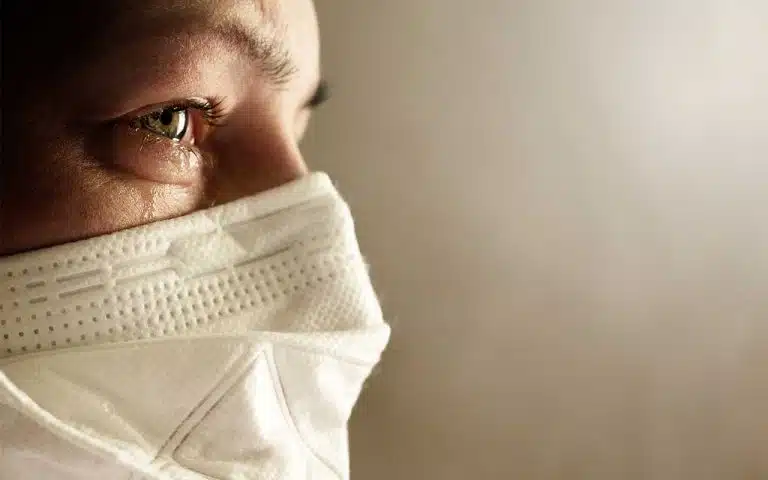CDC Reports Record-High Drug Overdose Deaths During COVID-19

In 2018, drug overdose deaths declined for the first time in twenty years. Unfortunately, they increased over the next two years, largely due to the COVID-19 pandemic.
The Centers for Disease Control and Prevention (CDC) recently reported that in the United States, 88,295 people died from a drug overdose between August 2019 and August 2020, a 27% increase from the previous year and the country’s highest yearly overdose death toll.
The largest spike occurred between March 2020 and May 2020, when the pandemic first hit.
Drugs Involved In COVID-19 Overdose Deaths
Most of the reported deaths involved synthetic opioids, especially fentanyl. The CDC found that compared to the period between June 2018 and June 2019, fentanyl-related overdose deaths increased 38.4% between May 2019 and May 2020.
During that same period, 37 of the 38 U.S. jurisdictions with synthetic opioid data saw increases in synthetic opioid-related overdose deaths, with 18 of those jurisdictions seeing increases over 50 percent. Similarly, 10 western states saw over 98 percent increases in synthetic opioid-related deaths.
In addition, overdose deaths involving stimulants such as methamphetamine increased by 34.8%, while cocaine-related overdose deaths increased by 26.5%.
Often, when meth or cocaine are involved in overdose deaths, they’ve been laced with fentanyl or other powerful opioids. Drug dealers add opioids to non-opioid drugs to provide a more intense high and decrease production costs, as most opioids are cheap and easy to produce.
The Link Between COVID-19 & Overdose Deaths
Overdose likely results from drug abuse, and drug abuse usually results from a desire to reduce stress. The COVID-19 pandemic has created a number of stressors, including:
- social isolation
- financial insecurity
- unemployment
- loss of loved ones to COVID-19
It’s also created additional stressors for people who struggle with substance use disorder (also called SUD or drug addiction).
Substance Use Disorder (SUD)
Most people recovering from SUD require a daily routine. The structure keeps them focused, provides a sense of purpose, and prevents boredom that can lead to drug use.
Thus, people with SUD may find it more difficult than the general public to work from home or cope with joblessness caused by the pandemic. To feel better, they might relapse (start using drugs again) and overdose.
Relapse
SUD can make it harder to deal with social distancing. When someone with the disorder can’t surround themselves with friends, family, and support groups, they’re more likely to relapse.
Moreover, if they overdose when no one else is around, they’ll likely miss out on life-saving medical care.
Limited Access To Addiction Treatment
Finally, and perhaps most importantly, COVID-19 has hindered access to addiction treatment. At the start of the pandemic, many rehab centers temporarily suspended in-person services due to social distancing concerns.
The pandemic also closed lots of “drop-in centers” that offer naloxone, a medication that can rapidly reverse the effects of an opioid overdose. These suspensions and closures left many people vulnerable to fatal overdose.
How You Can Help Prevent Overdose Deaths
To reduce overdose deaths during COVID-19 and beyond, the CDC has recommended key strategies for medical and public health professionals, first responders, and other community partners.
The strategies include:
- expanding awareness of substance abuse treatment programs
- intervening early with people at highest risk of overdose
- expanding the use of naloxone, an opioid overdose reversal medication
Although the CDC recommends strategies for professionals and communities at large, you can also take steps to protect loved ones from a fatal overdose.
Spot Signs Of Overdose
You can learn the most common signs of overdose, which include:
- pale, cold, clammy, or bluish skin
- limp body
- choking or gurgling sounds
- change in pupil size
- change in body temperature
- nausea and vomiting
- trouble breathing
- confusion
- loss of consciousness
If someone you know experiences these symptoms, stay with them, and call 911 or seek medical care right away.
Help Loved Ones Find Treatment
You don’t need to be a medical professional or addiction specialist to prevent overdose deaths. You can save a life by simply helping your loved one who struggles with substance abuse find a treatment program.
In addition, you can learn how to use naloxone, which is available at most pharmacies without a prescription.
For information on our treatment programs and services, please contact us today.
Written by Ark Behavioral Health Editorial Team
©2024 Ark National Holdings, LLC. | All Rights Reserved.
This page does not provide medical advice.
Centers for Disease Control and Prevention - Overdose Deaths Accelerating During COVID-19
The Commonwealth Fund - The Spike in Drug Overdose Deaths During the COVID-19 Pandemic and Policy Options to Move Forward
New York Times - Overdose Deaths Have Surged During the Pandemic, C.D.C. Data Shows

Questions About Treatment?
Ark Behavioral Health offers 100% confidential substance abuse assessment and treatment placement tailored to your individual needs. Achieve long-term recovery.
100% confidential. We respect your privacy.
Prefer Texting?
Our friendly support team is here to chat 24/7. Opt out any time.







 Learn More
Learn More








